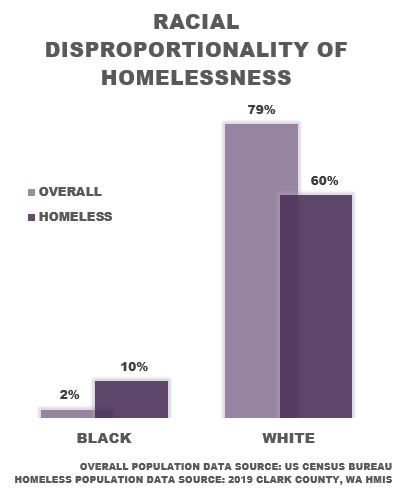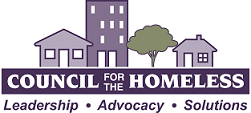By Kate Budd, Council for the Homeless
Black History Month is a reminder for our community and beyond to reflect on the rich and valuable history generations of people who are Black have had in history. And to celebrate those who are currently making history today and every day.
At Council for the Homeless we are particularly thankful for our partnership with the NAACP Vancouver Chapter. This is an important and strong organization working tirelessly to secure equality of all rights in order to eliminate race-based discrimination and ensure health and well-being of all.
The NAACP joins with CFTH and many other agencies on a monthly basis to discuss programs that serve families with at least one person of color and/or person who identifies as LGBT. The conversation includes both policy-level and household-level topics seeking to reduce barriers for participants while increasing their supports, stability and skills. On more than one occasion, a family regained housing stability because of the strong connections built with NAACP
members.
This population specific work is imperative in order to reduce homelessness nationally and in our community. This is particularly true after the latest Annual Homeless Assessment Report or AHAR, was recently released at the Federal level. The report found Black families make up 40 percent of the people who are homeless, compared to 13 percent for families who are white. According to the National Alliance to End Homelessness, “Most minority groups in the U.S. experience homelessness at higher rates than Whites, and therefore make up a disproportionate share of the homeless population.”

In Clark County, Black people make up 2 percent of the overall population, compared to 10 percent of the population of people experiencing homelessness, according to the 2019 Homeless Management Information System (HMIS) Data.
In comparison, white people make up 79 percent of the population, compared to accounting for 60 percent of the population of people experiencing homelessness.
These data indicate a clear need to focus on groups that are disproportionately impacted by homelessness. Working in partnership with culturally specific local and regional groups, increasing cultural responsivity of all agencies serving people experiencing homelessness will continue to be a focus for our agency and across the Continuum of Care. This means having a strong continuum of best practice programs, providing a wide array of program options and partnering with diverse agencies and groups. Creating programs and supports that work well for everyone is the only way to see real decrease in homelessness across the community.
